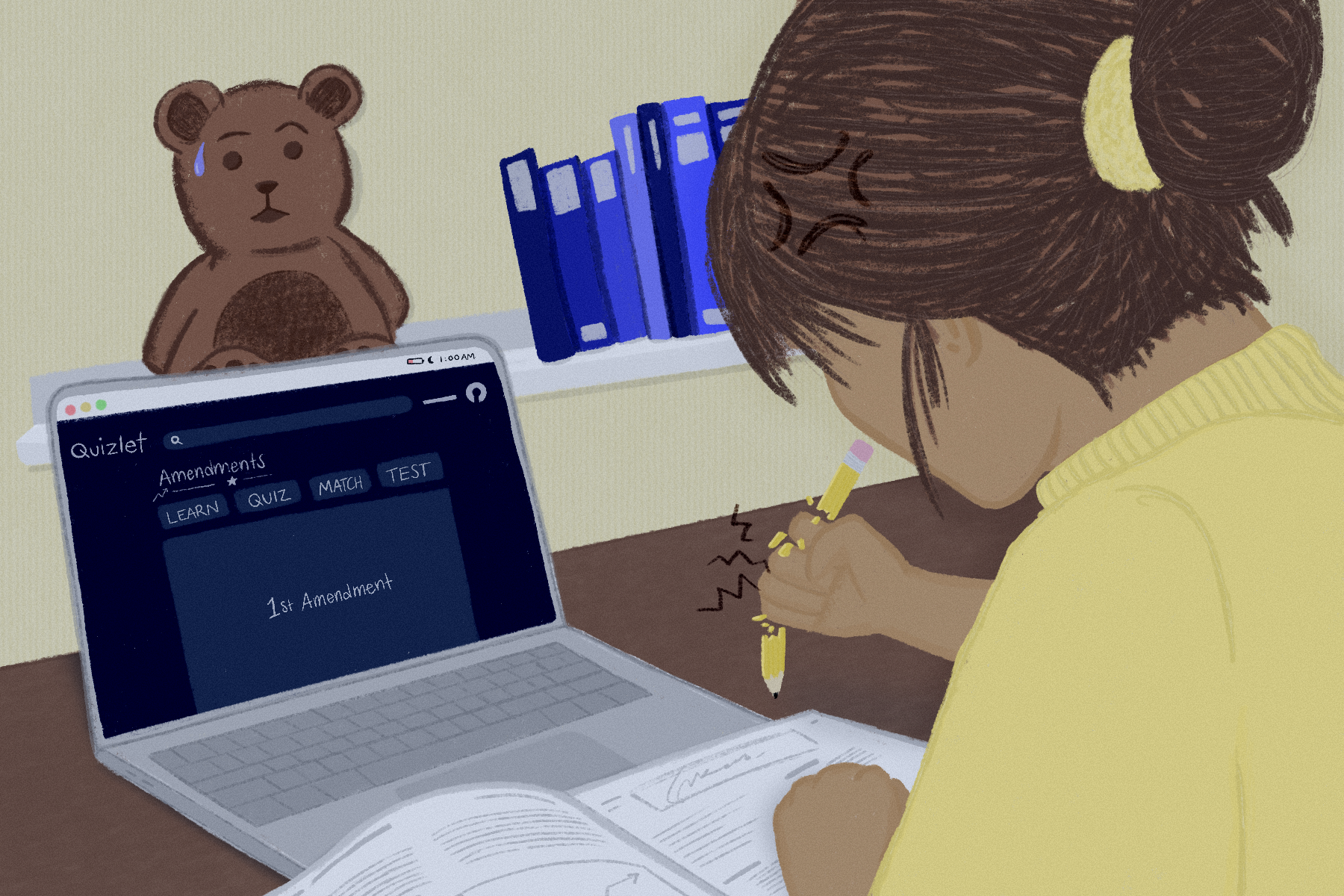Though it is becoming more and more difficult to study online, free resources such as time management and friendship can come in clutch.
With the increasing accessibility of resources online, digital studying materials that were once freely available in middle and high school have now been locked behind a paywall. Now, if a student wanted to prepare a set of 50 flashcards on Quizlet for their American history exam, they would have to pay a $7.99 monthly subscription or $35.99 annual subscription. But is a resource like Quizlet, something most students use to cram for their exam, really worth a year-long subscription?
Along with their already mentioned digitalization, it is becoming increasingly common for resources and entertainment to be locked behind a paywall. Spotify, for example, charges between $10.99 to $14.99 depending on the plan; but even Spotify is a necessity compared to something like Quizlet. Unless someone is on the daily grind for their Medical College Admission Test (MCAT), it is unlikely someone is on Quizlet running through flashcards daily, like most people are listening to music. Once making a set of cards, users are only able to click through five rounds; after that, they are pressed to pay to make further use of any of Quizlet’s learning games. It makes more sense to hand make a hundred flashcards and flip through them after class.
Similarly, other popular resources for checking homework, asking questions or simply meeting a deadline have grown obsolete behind a paywall. Chegg starts at $14.95 per month, and Study.com’s lower-level subscriptions cost $59.99, making Quizlet look affordable for desperate students during finals season. When resources are scarce on campus – such as office hours, lecture notes or even practice tests – these sites lock away resources to students who are just trying to get through their semester with passing grades.
A more recently developed app, Anki, is a hidden gem. Popular amongst medical students and pre-med undergraduates, Anki offers what Quizlet once did for free. Students are able to make cards and run through without a limit. Yet, popular in name and difficult to find, there have been knockoffs spitting on the good name of Anki.
AnkiApp (not to be confused with Anki) runs like the real app, allowing users to make organized cards, run through them both on the computer and on a phone, and even incorporates the advantages of the real Anki. Yet, beneath the face of what seems like the actual app, after a certain amount of run-throughs of the card deck, students are confronted with a paywall.
As valuable as online resources are for convenient studying and cramming, students should remember that classic study strategies don’t even need a computer. Actively studying with friends, creating visual maps on paper and working with materials like chemistry structure kits or participating in lab classes help. As vital as online resources are good for when students are in a crunch, the best resource is ample time and a plan to study.
Making time to study and time to relax is vital when preparing for finals, an exam or even weekly quizzes. It is important to find balance between life, studying and school, so remembering that you really don’t need to depend on online resources for success.

















